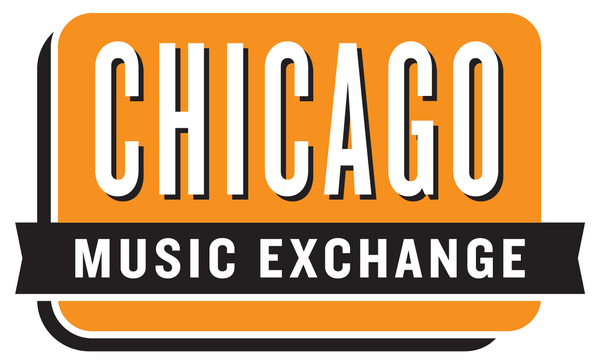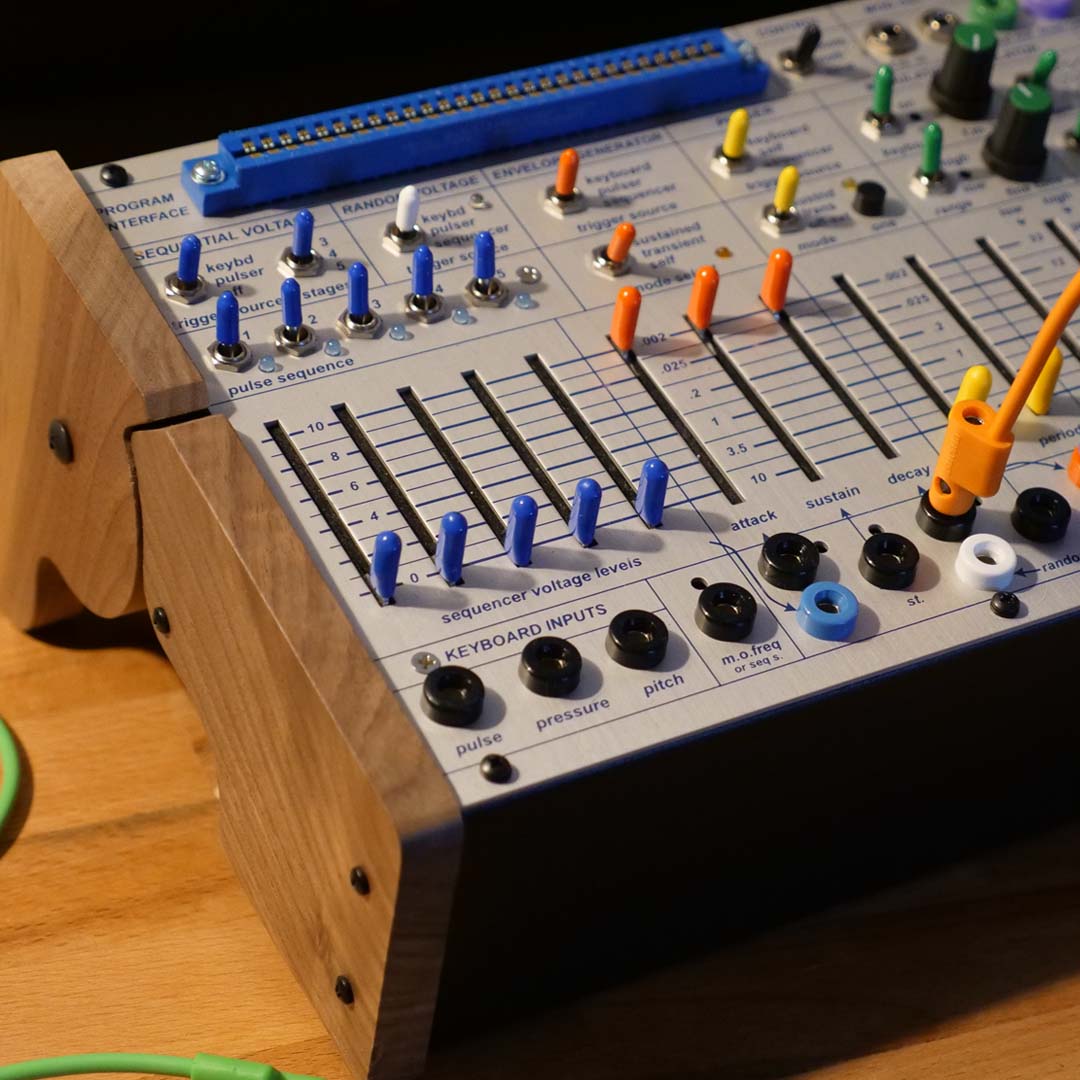Introducing | Buchla
NEW at CME: Buchla Easel Command Module
Adding yet another to its roster of legendary brand names, the Chicago Synth Exchange is proud to now carry Buchla USA! Founded on the work of synthesis pioneer and master instrument designer Donald Buchla, whose 50-year body of intellectual property was acquired by the company. Buchla USA’s mission is to keep Don Buchla’s legacy alive with sales and support of his coveted 200e Modular Synthesizer system and to develop products—like the Buchla Easel Command Module semi-modular desktop synthesizer, now at CME, designed to introduce the unique world of “West Coast” synthesis to a new generation of electronic music makers!
Now available for pre-order from the Synth Exchange, the Buchla Easel Command Module is a complete, standalone Buchla workflow directly descendant from the iconic Music Easel. Encapsulating many of the tools and the spirit of what is now popularly known as “West Coast” synthesis, the Easel Command combines the newly-revised 208C with a desktop enclosure and provides users plenty of options for interfacing, from MIDI and USB connectivity to Eurorack-compatible CV and Gate inputs. Its slider-based user interface and color-coded banana jacks make it stand out from any other instrument at the Synth Exchange!
An Era of Experimentation
The San Francisco Bay Area became synonymous with the concept of “experimentation” in the 1960 and ‘70s—intellectual, chemical, and musical—long before it grew into the hub of technological software innovation we know it for today. And, whether or not you know his name (yet) Donald Buchla is now considered one of the conceptual, out-of-the-box thinkers responsible for the establishment and growth of the Bay Area’s experimental reputation with his idiosyncratic electronic musical instrument designs and his pioneering conceptual approach to electronic music performance, which is now known as “West Coast” synthesis.
After graduating from the University of California, Berkeley in 1960 with a degree in physics, Buchla constructed his first voltage-controlled synthesizer in 1963 with the 100 series Electronic Music System. Commissioned by electronic music pioneers Ramon Sender and Morton Subotnick, the first Buchla synth comprised several modular boxes that generated and/or modified a “musical event.” The electronic and functional sophistication of the individual modules, alongside the ability to connect or “patch” them together in any configuration of the users choice, gave musicians and composers the power to create unique, never-before-heard sounds.
Buchla's Mission: Unrestrained Creativity in Electronic Music
Don Buchla never referred to his instruments as “synthesizers,” since the word connotes imitation of existing sounds and/or instruments. So, most of Buchla’s designs—including the Music Easel that the Easel Command Module is based on—omit a piano-style keyboard, instead of adding a unique “multi-dimensional kinesthetic input port” controller. In addition, Buchla frequently used complex waveshaping oscillators to create utterly unique timbres and tones, in lieu of the more traditional oscillator/filter combinations common to most synths.
Right away, you’ll also notice the Buchla nomenclature deviates far from standard terms—e.g., oscillator, filter, amplifier, and sequencer. Instead, Buchla named his controls and components based on his philosophical and conceptual approach to generating sounds: “Complex Waveform Generator,” “Multiple Arbitrary Function Generator,” “Source of Uncertainty,” and “Quad Dynamics Manager,” etc.
Originally part of the Buchla 200 Series Electric Music Box, Don Buchla designed the original Music Easel in 1972 to facilitate experimental synthesis and exploratory sound design, based on the 208 Store Program Sound Source responsible for the hallmark sounds of artists like Kaitlyn Aurelia Smith, Charles Cohen, Todd Barton, among others.
While you can think of the Buchla Easel Command Module as an experimental subtractive monosynth, its power lies in its potential for deviating from many now-standard synthesis concepts. To start conducting your own musical experiments and sonic explorations, preorder your Buchla Easel Command Module desktop synthesizer from the Synth Exchange, today!
SHOP BUCHLA
Related Posts
Teenage Engineering | OP-XY
The OP–XY is an advanced, all-in-one synthesizer and composer designed to empower creativity in a streamlined, portable form. With a powerful 64-step sequencer and 24-voice polyphony, this innovative groove-box offers precise, direct sequencing abilities, allowing users to build complex tracks layer by layer. Its high connectivity includes MIDI, CV, sync, and gate support, USB-C, and Bluetooth MIDI, making it adaptable for any studio setup.
View DetailsFender | Hello Kitty Collection
Step into the colorful world of Hello Kitty with the Fender x Hello Kitty collection, a vibrant collaboration that bridges generations of fans. This collection blends Hello Kitty’s playful, bold aesthetic with Fender’s renowned performance and craftsmanship, offering a unique fusion of style and sound to celebrate Hello Kitty’s 50th Anniversary!
View DetailsChicago Music Exchange | 2024 Holiday Gift Guide
Welcome to the 2024 Chicago Music Exchange Holiday Gift Guide! Whether you're shopping for yourself or looking for the perfect present for the musician in your life, we've compiled a list of our top picks across a wide range of budgets and categories. From the hottest new gear to staff favorites, there's something for everyone here. Let’s dive in!
View Details





